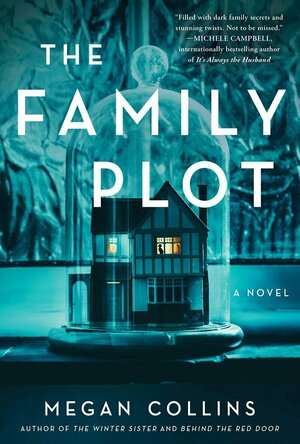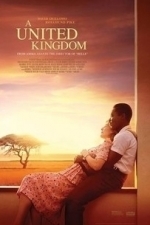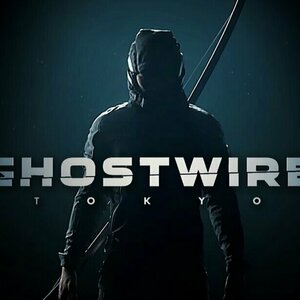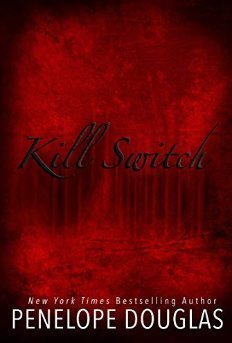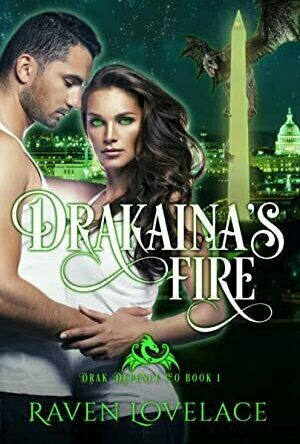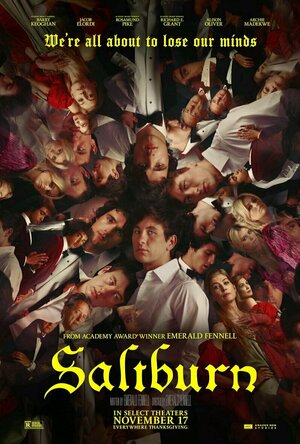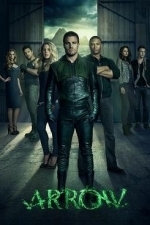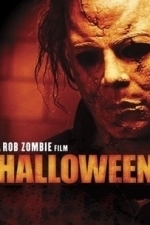Search
Search results
Kristy H (1252 KP) rated The Family Plot in Books
Sep 16, 2021
Dahlia Lighthouse and her siblings were all named after various people murdered by serial killers. Her parents are obsessed by true crime, and the children were raised in an isolated island home known as the "Murder Mansion" to the locals. Each sibling left when they received their inheritance, except for Dahlia's twin brother, Andy, who disappeared when they were sixteen. Dahlia's been gone from home for seven years when she reluctantly returns after her father's death. Once home, the family receives some terrible news; someone is already buried in their father's plot: Andy, his skull split with an ax. As Dahlia tries to work through her grief over Andy and attempt to figure out what happened to him, she begins to realize that it may trace back to her island home and her family.
"I have to find out what happened to Andy. Then I have to leave this place for good."
This is a dark thriller that will appeal to true crime fans. The Lighthouse family embodies true crime--home schooled, the kids write reports on various serial killer victims and they perform rituals related to their deaths. The obsession with death and murder runs deep, and it's certainly unsettling at first. Dahlia's mother lost her own parents in a gruesome way, and it's definitely apparent that this family isn't quite right.
The first half of this book was really fascinating for me. Weird yes, but oddly interesting as you get to know this messed up family and all their dark secrets. Dahlia seems like a sister grieving the loss of her twin brother, and you find yourself wanting to know what happened to him. There's certainly a limited pool of suspects (small island) but the book keeps you guessing.
The second half did not seem as strong as the first. The weirdness factor ratchets up to almost unbelievable. Dahlia's older siblings are annoying and too much. The limited pool of subjects becomes almost cloying, suddenly making things seem too obvious as the plot thickens and become a bit too bizarre. Things get incredibly grim at times.
Still, while this is a strange read, overall it's a page-turner and something kept me reading. It's like a trainwreck from which you cannot look away. Collins definitely includes some good points about the bonds of family and people's obsession with crime and murder. 3.5 stars.
I received a copy of this book from Atria Books and Netgalley in return for an unbiased review.
"I have to find out what happened to Andy. Then I have to leave this place for good."
This is a dark thriller that will appeal to true crime fans. The Lighthouse family embodies true crime--home schooled, the kids write reports on various serial killer victims and they perform rituals related to their deaths. The obsession with death and murder runs deep, and it's certainly unsettling at first. Dahlia's mother lost her own parents in a gruesome way, and it's definitely apparent that this family isn't quite right.
The first half of this book was really fascinating for me. Weird yes, but oddly interesting as you get to know this messed up family and all their dark secrets. Dahlia seems like a sister grieving the loss of her twin brother, and you find yourself wanting to know what happened to him. There's certainly a limited pool of suspects (small island) but the book keeps you guessing.
The second half did not seem as strong as the first. The weirdness factor ratchets up to almost unbelievable. Dahlia's older siblings are annoying and too much. The limited pool of subjects becomes almost cloying, suddenly making things seem too obvious as the plot thickens and become a bit too bizarre. Things get incredibly grim at times.
Still, while this is a strange read, overall it's a page-turner and something kept me reading. It's like a trainwreck from which you cannot look away. Collins definitely includes some good points about the bonds of family and people's obsession with crime and murder. 3.5 stars.
I received a copy of this book from Atria Books and Netgalley in return for an unbiased review.
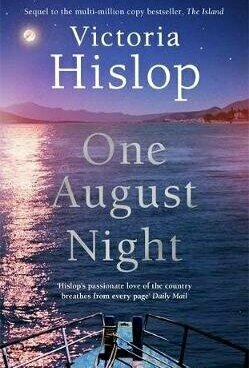
One August Night
Book
'Excellent as ever. Victoria Hislop at her best.' Reader review 'Within a few pages I was back in...
Bob Mann (459 KP) rated A United Kingdom (2017) in Movies
Sep 29, 2021
“In to Africa”.
I managed to miss this film when it was first shown at the end of 2016. And what a shame as it would have UNDOUBTEDLY made my “Films of the Year” list.
Directed by Amma Asante (“Belle”) this is the true tale of a real-life fairy story, featuring a handsome prince and his love, who can never be his princess thanks to the Machievellian schemings of court-do-gooders and bureaucrats.
The prince in this case is Seretse Kham (David Oyelowo, “Selma“) , heir to the throne of Bechuanaland (now Botswana), who meets and falls in love with a lowly white Lloyd’s of London clerk Ruth Williams (Rosamund Pike, “Gone Girl“, “The World’s End“). The plot has many parallels with that of another film from earlier this year: “Loving” with Ruth Negga and Joel Edgerton. As an inter-racial couple in 1947 this is taboo enough, but the fact that Kham is soon to be king in a country bordering the apartheid tinderkeg that is South Africa blows the affair up to be a diplomatic crisis.
Concern in the corridors of power for Prime Minister Atlee (Anton Lesser) being faced up to by the couple’s supporter – a young Anthony Wedgewood Benn (Jack Lowden).
Defying the officials he marries his true love, driving a wedge between both his own uncle (Vusi Kunene ) and sister (Terry Pheto) and making Ruth an outcast in both countries. As things turn from bad to worse, can true love conquer all their adversities?
Just everything about this film delights. Oyelowo and Pike – always a safe pair of hands – add real emotional depth to their roles. Their relationship feels natural and loving without either of them trying too hard. The estrangement of Ruth from her parents (particularly her father played by Nicholas Lyndhurst) is truly touching.
Another star turn is Harry Potter alumni Tom Felton, playing Rufus Lancaster – a weaselly and very unpleasant local official. I have a prediction…. that in 30 year’s time, the young Potter actor that will be the ‘Ian McKellen of his day’ (that is, a world recognized great actor… not necessarily gay!) will be Felton.
Sam McCurdy (“The Descent”) delivers cinematography of Africa that is vibrant (to be fair, for anyone lucky enough to visit Africa will know, cameras just love the place) and the John Barry-esque music by Patrick Doyle (“Murder on the Orient Express“) is pitch perfect for the mood.
When it says “Based on a true story” it means it: the real family.
A beautifully crafted film that older viewers will just love.
Directed by Amma Asante (“Belle”) this is the true tale of a real-life fairy story, featuring a handsome prince and his love, who can never be his princess thanks to the Machievellian schemings of court-do-gooders and bureaucrats.
The prince in this case is Seretse Kham (David Oyelowo, “Selma“) , heir to the throne of Bechuanaland (now Botswana), who meets and falls in love with a lowly white Lloyd’s of London clerk Ruth Williams (Rosamund Pike, “Gone Girl“, “The World’s End“). The plot has many parallels with that of another film from earlier this year: “Loving” with Ruth Negga and Joel Edgerton. As an inter-racial couple in 1947 this is taboo enough, but the fact that Kham is soon to be king in a country bordering the apartheid tinderkeg that is South Africa blows the affair up to be a diplomatic crisis.
Concern in the corridors of power for Prime Minister Atlee (Anton Lesser) being faced up to by the couple’s supporter – a young Anthony Wedgewood Benn (Jack Lowden).
Defying the officials he marries his true love, driving a wedge between both his own uncle (Vusi Kunene ) and sister (Terry Pheto) and making Ruth an outcast in both countries. As things turn from bad to worse, can true love conquer all their adversities?
Just everything about this film delights. Oyelowo and Pike – always a safe pair of hands – add real emotional depth to their roles. Their relationship feels natural and loving without either of them trying too hard. The estrangement of Ruth from her parents (particularly her father played by Nicholas Lyndhurst) is truly touching.
Another star turn is Harry Potter alumni Tom Felton, playing Rufus Lancaster – a weaselly and very unpleasant local official. I have a prediction…. that in 30 year’s time, the young Potter actor that will be the ‘Ian McKellen of his day’ (that is, a world recognized great actor… not necessarily gay!) will be Felton.
Sam McCurdy (“The Descent”) delivers cinematography of Africa that is vibrant (to be fair, for anyone lucky enough to visit Africa will know, cameras just love the place) and the John Barry-esque music by Patrick Doyle (“Murder on the Orient Express“) is pitch perfect for the mood.
When it says “Based on a true story” it means it: the real family.
A beautifully crafted film that older viewers will just love.
Gareth von Kallenbach (980 KP) rated the PC version of GhostWire: Tokyo in Video Games
Apr 15, 2022
The talented team at Tango Gameworks has returned with a new horror game, Ghostwire Tokyo, and advances upon their already impressive Evil Within series.
The game is set in a post-disaster Tokyo where the player character Akito is saved from death by a spirit known as KK who possesses the body of Akito and gives him supernatural powers to complete his quests.
Playing from a first-person perspective, players must explore a highly-detailed city to complete various mission objectives all the while staying clear of a deadly fog and evil creatures who know roam the city.
Players will be able to use special attack and defensive abilities which they can upgrade over time but must also be aware of the need to replenish the magic that powers them so being selective with attacks is a wise idea vs trying to rapidly cut down all enemies that are encountered.
Players can also obtain a Bow which can help when powers need to be recharged and seeing how dangerous and abundant enemies are, this is a good thing.
Akito is also hoping to save his sister who has been targeted by the main enemies in the game and this enables conflict between Akito and KK as they must work with one another despite seeming to have differing agendas.
The detailed city allows players to gather food for their health as well as Charms that can be redeemed at phone booths which will aid in their quest and the highly-detailed city is great to explore when not engaged in combat.
I did not see an option for English narration and while I had no problems at all with the Japanese spoken in the game, looking at the translation on the screen at times distracted me from some of the more intense segments and action.
The powers Akito deployed were very enjoyable and seeing the colorful discharges and defense modes really added to an already intense and engaging game. My only real issue with the game was the detailed story caused abundant and at times lengthy narrative scenes and when you just completed one to have another arise soon after a brief moment of player-controlled action often gave me the impression that I was watching the game versus controlling the action.
Fortunately, as the game unfolded the action and story were more than enough to keep my attention and made Ghostwire Tokyo one of the more unique and engaging games in recent memory and one that I recommend any Horror fan play.
4 stars out of 5
The game is set in a post-disaster Tokyo where the player character Akito is saved from death by a spirit known as KK who possesses the body of Akito and gives him supernatural powers to complete his quests.
Playing from a first-person perspective, players must explore a highly-detailed city to complete various mission objectives all the while staying clear of a deadly fog and evil creatures who know roam the city.
Players will be able to use special attack and defensive abilities which they can upgrade over time but must also be aware of the need to replenish the magic that powers them so being selective with attacks is a wise idea vs trying to rapidly cut down all enemies that are encountered.
Players can also obtain a Bow which can help when powers need to be recharged and seeing how dangerous and abundant enemies are, this is a good thing.
Akito is also hoping to save his sister who has been targeted by the main enemies in the game and this enables conflict between Akito and KK as they must work with one another despite seeming to have differing agendas.
The detailed city allows players to gather food for their health as well as Charms that can be redeemed at phone booths which will aid in their quest and the highly-detailed city is great to explore when not engaged in combat.
I did not see an option for English narration and while I had no problems at all with the Japanese spoken in the game, looking at the translation on the screen at times distracted me from some of the more intense segments and action.
The powers Akito deployed were very enjoyable and seeing the colorful discharges and defense modes really added to an already intense and engaging game. My only real issue with the game was the detailed story caused abundant and at times lengthy narrative scenes and when you just completed one to have another arise soon after a brief moment of player-controlled action often gave me the impression that I was watching the game versus controlling the action.
Fortunately, as the game unfolded the action and story were more than enough to keep my attention and made Ghostwire Tokyo one of the more unique and engaging games in recent memory and one that I recommend any Horror fan play.
4 stars out of 5
Lyndsey Gollogly (2893 KP) rated Kill Switch in Books
Feb 17, 2023
🔞🔞🔞
17 of 235
Kindle
Kill switch ( Devils Night book 3)
By Penelope Douglas
⭐️⭐️⭐️⭐️
"I've done far worse than what I went to prison for. She has no idea how bad this can get."
WINTER
Sending him to prison was the worst thing I could’ve done. It didn’t matter that he did the crime or that I wished he was dead. Perhaps I thought I’d have time to disappear before he got out or he’d cool off in jail and be anything but the horror he was.
But I was wrong. Three years came and went too fast, and now he’s anything but calm. Prison only gave him time to plan.
And while I anticipated his vengeance, I didn’t expect this.
He doesn’t want to make me hurt. He wants to make everything hurt.
DAMON
First thing’s first. Get rid of her daddy. He told them I forced her. He told them his little girl was a victim, but I was a kid, too, and she wanted it just as much as I did.
Step two… Give her, her sister, and her mother nowhere to run and no fuel to escape. The Ashby women are alone now and desperate for a knight in shining armor.
But that’s not what’s coming.
No, it’s time I listened to my father and took control of my future. It’s time I showed them all—my family, her family, my friends—that I will never change and that I have no other ambition than to be the nightmare of their lives.
Starting with her.
She’ll be so scared, she won’t even be safe in her own head by the time I’m done with her. And the best part is I won’t have to break into her home to do it.
As the new man of the house I have all the keys.
For gods sake this woman knows how to kick you in the guts with trauma! This has so many trigger warnings. This book makes you feel everything it’s quite graphic and she doesn’t hold back! Whether you like this series or not the woman writes abuse better than anyone I’ve read she gets you feeling all the emotions. I still can’t stand these men but there is a catalyst for each one of them that being the worlds worst parents they certainly didn’t do their kids any good. One thing I love is these women are strong and ruling the world is on the agenda!
17 of 235
Kindle
Kill switch ( Devils Night book 3)
By Penelope Douglas
⭐️⭐️⭐️⭐️
"I've done far worse than what I went to prison for. She has no idea how bad this can get."
WINTER
Sending him to prison was the worst thing I could’ve done. It didn’t matter that he did the crime or that I wished he was dead. Perhaps I thought I’d have time to disappear before he got out or he’d cool off in jail and be anything but the horror he was.
But I was wrong. Three years came and went too fast, and now he’s anything but calm. Prison only gave him time to plan.
And while I anticipated his vengeance, I didn’t expect this.
He doesn’t want to make me hurt. He wants to make everything hurt.
DAMON
First thing’s first. Get rid of her daddy. He told them I forced her. He told them his little girl was a victim, but I was a kid, too, and she wanted it just as much as I did.
Step two… Give her, her sister, and her mother nowhere to run and no fuel to escape. The Ashby women are alone now and desperate for a knight in shining armor.
But that’s not what’s coming.
No, it’s time I listened to my father and took control of my future. It’s time I showed them all—my family, her family, my friends—that I will never change and that I have no other ambition than to be the nightmare of their lives.
Starting with her.
She’ll be so scared, she won’t even be safe in her own head by the time I’m done with her. And the best part is I won’t have to break into her home to do it.
As the new man of the house I have all the keys.
For gods sake this woman knows how to kick you in the guts with trauma! This has so many trigger warnings. This book makes you feel everything it’s quite graphic and she doesn’t hold back! Whether you like this series or not the woman writes abuse better than anyone I’ve read she gets you feeling all the emotions. I still can’t stand these men but there is a catalyst for each one of them that being the worlds worst parents they certainly didn’t do their kids any good. One thing I love is these women are strong and ruling the world is on the agenda!
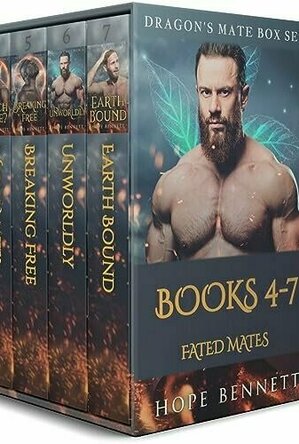
Dragon's Mate Volume Two: Books 4-7
Book
Enjoy the Dragon’s Mate series in this convenient bundle. Witch Mate? Anthony is in trouble....
MM Paranormal Romance Shifters Dragons
Merissa (13765 KP) rated Drakaina's Fire (Drak Defense Co. #1) by Raven Lovelace in Books
Jun 15, 2022
DRAKAINA'S FIRE is the first book in the Drak Defense Co. series and we are introduced to a first-class group of women mercenaries who are able to pull off jobs no one else can. They charge top dollar, and the US Government is happy to pay it due to their success rate. Oh, and the fact they donate some of their money to widows and children of war charities.
Daphne is the eldest and has eleven sisters (same father, different mothers) who are all Drakaina (female pronoun). Everett is the youngest General in the military and is ordered to learn more about the mercenary crew. Both of them turn into silly putty when they meet each other.
For a debut book, this was a good start. The general concept of the world - both the normal and paranormal one - has its foundations laid. The big bad has been made known to us and the reasons behind it.
However, there are sentences and phrases that are repeated unnecessarily, words spelt correctly but used wrongly (be instead of me), and some things that just don't make sense. The supporting characters fade into the background as you don't learn much about them, the exception being Charlotte but I still don't know much about her either. Also, Daphne and Everett are supposed to be leaders! Some of the things they do - both separately and together - just don't make sense or seem physically possible. For example, if you've got members of your team going missing, you're not going to go off by yourself with no backup, especially when you know what you're up against.
And don't even get me started on Daphne's blip about betrayal! My Kindle was very nearly damaged with this one. Of course, I'll believe the man who works for the enemy, who has just admitted kidnapping and torturing my sister, who baited a trap I've just walked into, over the word of my mate who has done nothing but be there for me since we've met. And how does said man reappear later when he's supposed to be absolutely and utterly dead! D.E.A.D! Apparently, Drakaina aren't as thorough as they think they are, nor is their fire as hot as they think.
On the whole, a good debut but it will definitely need to be tightened up to go forwards.
** same worded review will appear elsewhere **
* A copy of this book was provided to me with no requirements for a review. I voluntarily read this book, and the comments here are my honest opinion. *
Merissa
Archaeolibrarian - I Dig Good Books!
Daphne is the eldest and has eleven sisters (same father, different mothers) who are all Drakaina (female pronoun). Everett is the youngest General in the military and is ordered to learn more about the mercenary crew. Both of them turn into silly putty when they meet each other.
For a debut book, this was a good start. The general concept of the world - both the normal and paranormal one - has its foundations laid. The big bad has been made known to us and the reasons behind it.
However, there are sentences and phrases that are repeated unnecessarily, words spelt correctly but used wrongly (be instead of me), and some things that just don't make sense. The supporting characters fade into the background as you don't learn much about them, the exception being Charlotte but I still don't know much about her either. Also, Daphne and Everett are supposed to be leaders! Some of the things they do - both separately and together - just don't make sense or seem physically possible. For example, if you've got members of your team going missing, you're not going to go off by yourself with no backup, especially when you know what you're up against.
And don't even get me started on Daphne's blip about betrayal! My Kindle was very nearly damaged with this one. Of course, I'll believe the man who works for the enemy, who has just admitted kidnapping and torturing my sister, who baited a trap I've just walked into, over the word of my mate who has done nothing but be there for me since we've met. And how does said man reappear later when he's supposed to be absolutely and utterly dead! D.E.A.D! Apparently, Drakaina aren't as thorough as they think they are, nor is their fire as hot as they think.
On the whole, a good debut but it will definitely need to be tightened up to go forwards.
** same worded review will appear elsewhere **
* A copy of this book was provided to me with no requirements for a review. I voluntarily read this book, and the comments here are my honest opinion. *
Merissa
Archaeolibrarian - I Dig Good Books!
BankofMarquis (1832 KP) rated Saltburn (2023) in Movies
Dec 29, 2023
Interesting...Intriguing...and Dark
Actress/Writer/Director Emerald Fennell is turning into an artistic voice that bears noticing and with SALTBURN - her follow-up to PROMISING YOUNG WOMAN (the film that won her the Academy Award for Best Original Screenplay) - Fennell’s artistic voice is in full bloom.
Starring Barry Keoghan (Oscar nominated for THE BANSHEES OF INISHERIN), SALTBURN tells the story of an Oxford student who befriends the rich, cool kid (Jacob Elordi, EUPHORIA) who invites him back to his family compound, SALTBURN, for the summer with his eccentric (to say the least) family.
As written and directed by Fennell, SALTBURN is a satire on the elite rich, showing them in their extravagant, quirky isolation in their compound, looking down on the common folk from their piles of money (or…in some cases…oblivious of the common folk because of their money) while peeling back the layers to show the unhappiness and manipulation underneath.
Fennell layers this story richly, slowly folding back facades and layers to show the ugliness of inherently unhappy people who cover their unhappiness up with wealth, money and parties.
Into this world comes Oliver Quick (Keoghan) who is the audiences’ conduit into this level of living - and who has secrets of his own.
Keoghan is interesting to watch (as always) and the family…Elordi, Sadie Soverall (his sister) and Archie Madekwe (another outsider who is jealous of Oliver’s appearance) all are good looking, good enough performers who live the hedonistic lifestyle and deny the consequences and responsibilities thereof.
When a film needs an “ice queen” as the matriarch of a family, Rosamund Pike is, inevitably, brought in and she brings the goods to Saltburn. She is perfectly cast as the mother of the family who says what she thinks, does not show what she is feeling and doesn’t give a darn about anyone else. She is suitably balanced by the off-balanced, quirky performance of the always good Richard E. Grant as the patriarch of the family who is (usually) lost in his own little world of whatever fantasy he is currently involved in.
But if this was just a film about a quirky family, it would be a fun, interesting romp. But…in Fennell’s hands, it becomes something much more sinister - and much more interesting - to watch.
Saltburn is a film that one must sit with after watching to digest what was just witnessed, but…ultimately…is one that is very interesting….and intriguing…and dark.
Letter Grade: B+
7 1/2 stars (out of 10) and you can take that to the Bank(ofMarquis)
Starring Barry Keoghan (Oscar nominated for THE BANSHEES OF INISHERIN), SALTBURN tells the story of an Oxford student who befriends the rich, cool kid (Jacob Elordi, EUPHORIA) who invites him back to his family compound, SALTBURN, for the summer with his eccentric (to say the least) family.
As written and directed by Fennell, SALTBURN is a satire on the elite rich, showing them in their extravagant, quirky isolation in their compound, looking down on the common folk from their piles of money (or…in some cases…oblivious of the common folk because of their money) while peeling back the layers to show the unhappiness and manipulation underneath.
Fennell layers this story richly, slowly folding back facades and layers to show the ugliness of inherently unhappy people who cover their unhappiness up with wealth, money and parties.
Into this world comes Oliver Quick (Keoghan) who is the audiences’ conduit into this level of living - and who has secrets of his own.
Keoghan is interesting to watch (as always) and the family…Elordi, Sadie Soverall (his sister) and Archie Madekwe (another outsider who is jealous of Oliver’s appearance) all are good looking, good enough performers who live the hedonistic lifestyle and deny the consequences and responsibilities thereof.
When a film needs an “ice queen” as the matriarch of a family, Rosamund Pike is, inevitably, brought in and she brings the goods to Saltburn. She is perfectly cast as the mother of the family who says what she thinks, does not show what she is feeling and doesn’t give a darn about anyone else. She is suitably balanced by the off-balanced, quirky performance of the always good Richard E. Grant as the patriarch of the family who is (usually) lost in his own little world of whatever fantasy he is currently involved in.
But if this was just a film about a quirky family, it would be a fun, interesting romp. But…in Fennell’s hands, it becomes something much more sinister - and much more interesting - to watch.
Saltburn is a film that one must sit with after watching to digest what was just witnessed, but…ultimately…is one that is very interesting….and intriguing…and dark.
Letter Grade: B+
7 1/2 stars (out of 10) and you can take that to the Bank(ofMarquis)
Connor Sheffield (293 KP) rated Arrow in TV
May 13, 2018
Closer to the comics than people think (5 more)
Great cast
Intriguing characters
Brilliant character development
Great drama
Great references to the comics
Some characters become annoying (1 more)
Not all seasons are consistent with quality
You Have (not) failed this series!
First of all I should tell you that Green Arrow is my all time favourite comic character so this review might have some bias but I'll keep it to a minimum because I am not blinded by this shows faults of which it's had quite a few.
When I first saw the trailer for Arrow I was hooked. Finally, a show about Green Arrow, one of the less popular heroes these days and one of the many heroes that makes the people who only watch comic book films, say "Who the hell is that?".
Series one had me hooked with great drama, and incredible action that made the week long wait for each episode painful. The drama was intense as we watch Oliver Queen trying to juggle his two lives as both Oliver Queen and Arrow (currently called the Vigilante or The Hood during season 1), as he tries to keep his night time activities as a vigilante a secret.
The faults of this series reside in some of the dialogue and characters who I won't name because it's not really down to one particular character as others do the same though some get more blame than others. The point is, some of the drama in the show is unnecessary and sometimes it's all over the place going from "I love you" to "never talk to me again" within seconds for very stupid reasons. If you can get past that though, you'll see a lot more of Green Arrow in the show than you realise.
One of the main things I love about this show is seeing Oliver Queen take on real life issues as well as comic book villains. Issues such as his sister taking drugs which, due to her childhood nickname being 'Speedy', is a reference to Green Lantern/Green Arrow #85 and #86 where Green Arrow finds out that Roy Harper is a drug addict. By making the series version about his sister however, makes the situation more personal which means it messes with Olivers head when he's out hunting the drug suppliers.
The villains have all been great in the series, even though not all have been praised. Malcom Merlyn as the first villain was a good choice because he's one of the few original Green Arrow Villains from comics and John Barrowman was a brilliant choice of casting. Deathstroke then took it up a notch and really made the series great, and his season is possibly still one of the best seasons (season 2). Ras Al Ghul was a very intense series and although everyone moaned that Arrow had become too much like Batman, but Arrow made it their own and made a brilliantly intense series with some great twists that at the time I was like "please don't end it like this...." Or... "Where do they go from here?" And Everytime I thought they might have made a mistake with a certain plot point, they proved me wrong.
Damien Darkh was probably one of the lesser great villains. The casting was perfect, because Damien Darkh was so menacing and so brilliantly evil with a human side to him at certain points, but I don't think personally, they should have brought magic into Arrow, because it added too many scenes where you thought "why would you even try this?" Or "why did he not do this and this moment". But unlike many I actually enjoyed Damien Darkh as a villain because the characters and intense story were brilliantly chosen and executed.
The last two seasons (5 & 6) have been really intense and incredibly action packed as Green Arrow and Team Arrow try to take on what feels like the world.
The downfalls of the series include some of the drama being not entirely necessary. We understand as an audience that tensions build and everyone has a thousand and one problems that they have to deal with, but everyone seems to unleash them all at once. I understand wanting to build the feeling that everything is falling apart, but it happens soooo much, and it's hard to sympathise with certain scenarios because of it.
Another slight issue is the love interests. If you know Green Arrow, then you know he's a bit of a ladies man and that he can often be caught flirting and more with many women, in the show, we see this done well but at the end of the day it aaaallllwaayyyss comes back to Olicity. Oliver and Felicity's love story has had so many ups and downs and they've fallen in and out of love so many times and whilst I love Felicity as a character and a member of the team, the love rollercoaster she is on with Oliver reaaalllyyy annoys me at times, but I try to look past it and everything's seems to be okay.
Overall though this is one of my favourite shows and I prefer it to The Flash though The Flash has had some better seasons than Arrow has. I can't wait to see what else the show brings to the screen as it has already brought many obscure characters such as Cupid, Vigilante, Prometheus, Bronze Tiger and more!
When I first saw the trailer for Arrow I was hooked. Finally, a show about Green Arrow, one of the less popular heroes these days and one of the many heroes that makes the people who only watch comic book films, say "Who the hell is that?".
Series one had me hooked with great drama, and incredible action that made the week long wait for each episode painful. The drama was intense as we watch Oliver Queen trying to juggle his two lives as both Oliver Queen and Arrow (currently called the Vigilante or The Hood during season 1), as he tries to keep his night time activities as a vigilante a secret.
The faults of this series reside in some of the dialogue and characters who I won't name because it's not really down to one particular character as others do the same though some get more blame than others. The point is, some of the drama in the show is unnecessary and sometimes it's all over the place going from "I love you" to "never talk to me again" within seconds for very stupid reasons. If you can get past that though, you'll see a lot more of Green Arrow in the show than you realise.
One of the main things I love about this show is seeing Oliver Queen take on real life issues as well as comic book villains. Issues such as his sister taking drugs which, due to her childhood nickname being 'Speedy', is a reference to Green Lantern/Green Arrow #85 and #86 where Green Arrow finds out that Roy Harper is a drug addict. By making the series version about his sister however, makes the situation more personal which means it messes with Olivers head when he's out hunting the drug suppliers.
The villains have all been great in the series, even though not all have been praised. Malcom Merlyn as the first villain was a good choice because he's one of the few original Green Arrow Villains from comics and John Barrowman was a brilliant choice of casting. Deathstroke then took it up a notch and really made the series great, and his season is possibly still one of the best seasons (season 2). Ras Al Ghul was a very intense series and although everyone moaned that Arrow had become too much like Batman, but Arrow made it their own and made a brilliantly intense series with some great twists that at the time I was like "please don't end it like this...." Or... "Where do they go from here?" And Everytime I thought they might have made a mistake with a certain plot point, they proved me wrong.
Damien Darkh was probably one of the lesser great villains. The casting was perfect, because Damien Darkh was so menacing and so brilliantly evil with a human side to him at certain points, but I don't think personally, they should have brought magic into Arrow, because it added too many scenes where you thought "why would you even try this?" Or "why did he not do this and this moment". But unlike many I actually enjoyed Damien Darkh as a villain because the characters and intense story were brilliantly chosen and executed.
The last two seasons (5 & 6) have been really intense and incredibly action packed as Green Arrow and Team Arrow try to take on what feels like the world.
The downfalls of the series include some of the drama being not entirely necessary. We understand as an audience that tensions build and everyone has a thousand and one problems that they have to deal with, but everyone seems to unleash them all at once. I understand wanting to build the feeling that everything is falling apart, but it happens soooo much, and it's hard to sympathise with certain scenarios because of it.
Another slight issue is the love interests. If you know Green Arrow, then you know he's a bit of a ladies man and that he can often be caught flirting and more with many women, in the show, we see this done well but at the end of the day it aaaallllwaayyyss comes back to Olicity. Oliver and Felicity's love story has had so many ups and downs and they've fallen in and out of love so many times and whilst I love Felicity as a character and a member of the team, the love rollercoaster she is on with Oliver reaaalllyyy annoys me at times, but I try to look past it and everything's seems to be okay.
Overall though this is one of my favourite shows and I prefer it to The Flash though The Flash has had some better seasons than Arrow has. I can't wait to see what else the show brings to the screen as it has already brought many obscure characters such as Cupid, Vigilante, Prometheus, Bronze Tiger and more!
Chris Sawin (602 KP) rated Halloween (2007) in Movies
Jun 19, 2019 (Updated Jun 21, 2019)
You probably already know the story of Michael Myers and the horror that took place in Haddonfield, Illinois on Halloween night. How Michael Myers became one of the biggest slasher icons in horror movie history. Now we get to hear the story told by Rob Zombie, the man who brought us House of 1,000 Corpses and The Devil's Rejects. He gives us some insight as to why Michael Myers is the way he is by showing us some of his childhood, the environment he grew up in, and how his family was. After he's institutionalized, we see how his progress continues to deteriorate as Dr. Samuel Loomis tries to do everything he can to save this young boy. Fifteen years go by when Loomis finally throws in the towel and Myers escapes Smith's Grove. Now on his way back to Haddonfield, Myers seeks his sister, Laurie, to finish what he started almost two decades ago.
There seems to be a huge debate amongst horror fans about whether this film was good or not. The results seemed to be pretty one-sided in favor of the original horror film from 1978, but now it seems the remake has almost just as many fans. I wouldn't say it was a 50/50 ratio, but 60/40 (60% of horror fans either hate the remake or prefer the original, 40% like the remake or prefer it over the original) seems about right these days. I managed to see the work print a few years ago and I wasn't impressed. With the release of Halloween 2 at the end of this month though, I promised myself I would give this film another shot. So that time has finally come and I can honestly say that the film isn't as bad as I remembered.
A few aspects of the film are actually quite good. Tyler Mane is a great Michael Myers. He's almost seven feet tall and is built like a giant. He's a total monster and the destruction and mayhem he causes is believable given his size. The adult version of Michael Myers is spot-on for a re-imagining of the film. Malcolm McDowell also does a good job as Dr. Loomis. He's no Donald Pleasance, but McDowell's take on the character isn't bad. Scout Taylor-Compton is also a worthy mention. She slips into the shoes of a modern day Laurie Strode rather flawlessly. Moving on from the acting though, the film is pretty solid from the time Michael gets his iconic mask through the finale. The way Michael made so many masks while he was in Smith's Grove was an interesting idea and the scene where you see his room fifteen years later with nothing but masks on every wall is one of the best in the film. The cinematography is also something that is often overlooked, which is a shame since it's actually pretty exceptional. It seemed to stand out most during the scenes where Michael was stalking Laurie, especially in the abandoned Myers house at the end. There's a scene right after Michael gets out of Smith's Grove where he goes to a truck stop and winds up getting the jumpsuit we're all familiar with. While there, he runs into Big Joe Grizzly in the bathroom stall and is banging Grizzly's hand, which is holding a knife, against the bathroom stall wall. As he's doing this though, the bathroom stall is just getting demolished but with every smashing blow, the camera violently shakes. The camera just always seemed to have a knack for giving a good perspective of what the character was going through, whether it was Michael or Laurie.
The disappointing part of this is pretty much everything leading up to Michael getting his mask back after his escape is pretty terrible. The dialogue, especially in the first ten to fifteen minutes of the film, is horrendous. Everything that's said between Deborah Myers and Ronnie White is just awful. The white trash upbringing just doesn't seem worthy for a horror icon like Michael Myers. It's just hard to believe that Michael Myers is the way he is because his mom was a stripper and his older sister was a whore. Logic seems to just be thrown by the way side as the film progresses. After Michael escapes from Smith's Grove, he returns to his old house where his mask and knife that he used to kill his family happen to just be lying under the floorboards. So did the police just pick up the bodies without searching the house or what? So he got his jumpsuit by stealing it from a guy taking a dump at a truck stop? Really? Hearing some of the original music return from John Carpenter's version of the film was a bit bittersweet. On one hand, it was great hearing it again. On the other, however, it just didn't seem to fit. Made me miss the original film more than anything. Giving Michael Myers a specific origin was probably Zombie's biggest mistake. The most terrifying thing about Michael Myers was that he was The Shape and had a bit of mystery to him. You knew he was going after Laurie, but other than that you had Loomis' word to fall back on. Michael was the human incarnation of pure evil. That's it. That's all you need. Humanizing the character and introducing us to his childhood only watered down the Michael Myers character.
There's a scene with Michael Myers and Dr. Loomis in Smith's Grove Sanitarium where Michael has made a mask that he's colored completely black. When Loomis asks him why it's black, Michael says that it's his favorite color. Loomis goes into an explanation about the color spectrum. Black is on one end and is the absence of color while white is at the opposite end and is every color. That's actually a great explanation of the differences between the original film and the remake. The original film would be the black segment of the spectrum. Carpenter's version leaves more to the viewer's imagination as the only explanation for Michael Myers is that he is "pure evil." While the remake would be the white segment of the spectrum as it goes into full detail why Michael Myers is the way he is and it shows every little violent and vulgar detail. Some people would say that having a little bit of mystery would be a good thing when it comes to a film like this while others like having everything laid out for them. It all depends on the viewer and which end of the spectrum they prefer. In my opinion though, that's the biggest mistake Rob Zombie made. There's no mystery left with the Michael Myers character. He's no longer The Shape, but is a psychopathic killer because he was raised by a white trash family, liked to torture animals, and whose sister didn't take him trick or treating.
The best thing Zombie can do is distance himself from the original film(s) as much as possible. To do something original with these characters. He looks like he'll do just that when Halloween 2 hits theaters on August 28th. One thing re-watching the remake accomplished was that it made me look forward to the sequel. The trailer looks really good (but to be fair, so did the trailer for the original film) and I was on the fence about it until I saw this again. The only problem I have is that Zombie seems to be telling the same story with the same initial cast with all of his films. House of 1,000 Corpses, The Devil's Rejects, and Halloween (first half of the film) are all way too similar. Zombie needs something new to add to his resume. Will Halloween 2 deliver that? Probably not, but a guy can hope.
There seems to be a huge debate amongst horror fans about whether this film was good or not. The results seemed to be pretty one-sided in favor of the original horror film from 1978, but now it seems the remake has almost just as many fans. I wouldn't say it was a 50/50 ratio, but 60/40 (60% of horror fans either hate the remake or prefer the original, 40% like the remake or prefer it over the original) seems about right these days. I managed to see the work print a few years ago and I wasn't impressed. With the release of Halloween 2 at the end of this month though, I promised myself I would give this film another shot. So that time has finally come and I can honestly say that the film isn't as bad as I remembered.
A few aspects of the film are actually quite good. Tyler Mane is a great Michael Myers. He's almost seven feet tall and is built like a giant. He's a total monster and the destruction and mayhem he causes is believable given his size. The adult version of Michael Myers is spot-on for a re-imagining of the film. Malcolm McDowell also does a good job as Dr. Loomis. He's no Donald Pleasance, but McDowell's take on the character isn't bad. Scout Taylor-Compton is also a worthy mention. She slips into the shoes of a modern day Laurie Strode rather flawlessly. Moving on from the acting though, the film is pretty solid from the time Michael gets his iconic mask through the finale. The way Michael made so many masks while he was in Smith's Grove was an interesting idea and the scene where you see his room fifteen years later with nothing but masks on every wall is one of the best in the film. The cinematography is also something that is often overlooked, which is a shame since it's actually pretty exceptional. It seemed to stand out most during the scenes where Michael was stalking Laurie, especially in the abandoned Myers house at the end. There's a scene right after Michael gets out of Smith's Grove where he goes to a truck stop and winds up getting the jumpsuit we're all familiar with. While there, he runs into Big Joe Grizzly in the bathroom stall and is banging Grizzly's hand, which is holding a knife, against the bathroom stall wall. As he's doing this though, the bathroom stall is just getting demolished but with every smashing blow, the camera violently shakes. The camera just always seemed to have a knack for giving a good perspective of what the character was going through, whether it was Michael or Laurie.
The disappointing part of this is pretty much everything leading up to Michael getting his mask back after his escape is pretty terrible. The dialogue, especially in the first ten to fifteen minutes of the film, is horrendous. Everything that's said between Deborah Myers and Ronnie White is just awful. The white trash upbringing just doesn't seem worthy for a horror icon like Michael Myers. It's just hard to believe that Michael Myers is the way he is because his mom was a stripper and his older sister was a whore. Logic seems to just be thrown by the way side as the film progresses. After Michael escapes from Smith's Grove, he returns to his old house where his mask and knife that he used to kill his family happen to just be lying under the floorboards. So did the police just pick up the bodies without searching the house or what? So he got his jumpsuit by stealing it from a guy taking a dump at a truck stop? Really? Hearing some of the original music return from John Carpenter's version of the film was a bit bittersweet. On one hand, it was great hearing it again. On the other, however, it just didn't seem to fit. Made me miss the original film more than anything. Giving Michael Myers a specific origin was probably Zombie's biggest mistake. The most terrifying thing about Michael Myers was that he was The Shape and had a bit of mystery to him. You knew he was going after Laurie, but other than that you had Loomis' word to fall back on. Michael was the human incarnation of pure evil. That's it. That's all you need. Humanizing the character and introducing us to his childhood only watered down the Michael Myers character.
There's a scene with Michael Myers and Dr. Loomis in Smith's Grove Sanitarium where Michael has made a mask that he's colored completely black. When Loomis asks him why it's black, Michael says that it's his favorite color. Loomis goes into an explanation about the color spectrum. Black is on one end and is the absence of color while white is at the opposite end and is every color. That's actually a great explanation of the differences between the original film and the remake. The original film would be the black segment of the spectrum. Carpenter's version leaves more to the viewer's imagination as the only explanation for Michael Myers is that he is "pure evil." While the remake would be the white segment of the spectrum as it goes into full detail why Michael Myers is the way he is and it shows every little violent and vulgar detail. Some people would say that having a little bit of mystery would be a good thing when it comes to a film like this while others like having everything laid out for them. It all depends on the viewer and which end of the spectrum they prefer. In my opinion though, that's the biggest mistake Rob Zombie made. There's no mystery left with the Michael Myers character. He's no longer The Shape, but is a psychopathic killer because he was raised by a white trash family, liked to torture animals, and whose sister didn't take him trick or treating.
The best thing Zombie can do is distance himself from the original film(s) as much as possible. To do something original with these characters. He looks like he'll do just that when Halloween 2 hits theaters on August 28th. One thing re-watching the remake accomplished was that it made me look forward to the sequel. The trailer looks really good (but to be fair, so did the trailer for the original film) and I was on the fence about it until I saw this again. The only problem I have is that Zombie seems to be telling the same story with the same initial cast with all of his films. House of 1,000 Corpses, The Devil's Rejects, and Halloween (first half of the film) are all way too similar. Zombie needs something new to add to his resume. Will Halloween 2 deliver that? Probably not, but a guy can hope.
